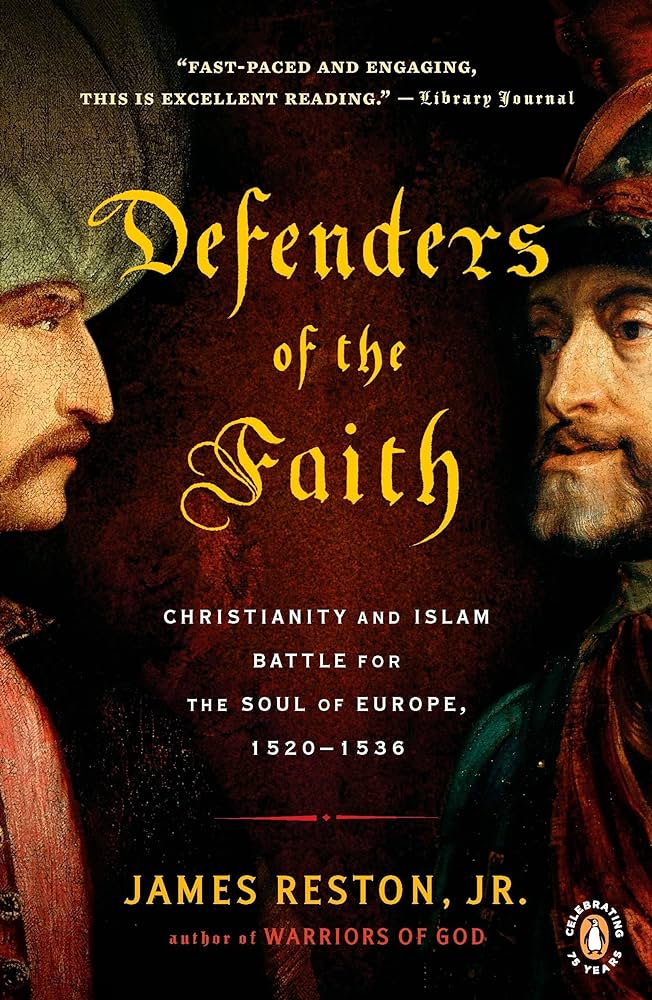|
Defenders of the Faith: Christianity and Islam Battle for the Soul of Europe, 1520-1536
By James Reston Jr. Published in July 2010 432 Pages Thibault’s Score: 4/5 Defenders of the Faith covers the intertwined lives of Holy Roman Emperor Charles V and Ottoman Sultan Suleiman the Magnificent. The book is history, but is written like an adventure novel. This makes reading it very easy. It is accessible to everyone, regardless of your knowledge of history, and has a lot of fascinating information in it. It has the tone, pacing, and intrigue that you would expect from a thriller. I could easily see this book being adapted into a Netflix mini-series. Charles the V was likely the most unfortunately lucky ruler in European history. Because of a fluke of lineage, he found himself holding several simultaneous positions at once: King of Burgundy, King of Spain, Archduke of Austria, and Holy Roman Empire. As a result of the fact that he held all of these titles simultaneously, his reign marked the first time that a monarch ruled a mostly united Europe since the time of collapse of Western Roman Empire. A small handful of remaining nations resisted his rule - notably France and England. His early rule would be marked by desperate attempts to diplomatically mollify, and later militarily pacify, these two troublemakers. His troubles would only increase when Martin Luther sparked the protestant reformation which would plunge Charles’ domain into civil war. The religious wars would culminate in a rogue army of his illegally sacking Rome and abducting the Pope, causing even more trouble. Finally, he would go to war with the Ottoman Turks on several fronts ranging from Morocco, to Spain, to the coasts of Italy, to Austria, to Greece. His counterpart, Suleiman the Magnificent, inherited a united realm and powerful centralized government from his tyrant father Selim the Grim. The Ottomans had two major historical enemies: the Mamluks in Egypt and the Levant, and the Shia Safavid Persians. The Mamluks had been fully conquered by his father Selim, and integrated into the Ottoman state. The Shia had been defeated, and Shia civilians had been genocidally suppressed. Unlike Charles V, Suleiman ruled a mostly united state. He wielded unquestioned authority. His reign would mark the apogee of the Ottoman Empire, and his death would mark the beginning of its slow decline. Suleiman, and his father Selim, would head a unified tyrannical state that would only be surpassed by the likes of France under Napoleon, Germany under Hitler, or the Soviet Union under Stalin. In the clash between the shattered European realm, and the united Ottoman Empire, Charles V was the underdog. Despite all the challenges that were thrown against him, Charles the V would persevere against all odds, successfully defending Europe. This book won’t give you any profound insights into the nature of European history. It will not fundamentally rewrite your understanding of the relationships between different nations. It will not help you master current day politics or economics. For that kind of historical read, you might want to pick up some of the other titles that I have recently reviewed. But if you are looking for a light, educational, and entertaining historical read, then I recommend this book.
0 Comments
Leave a Reply. |
Thibault SerletMost of my articles are book reviews, but I also write about many other topics. Archives
December 2023
Categories |

 RSS Feed
RSS Feed